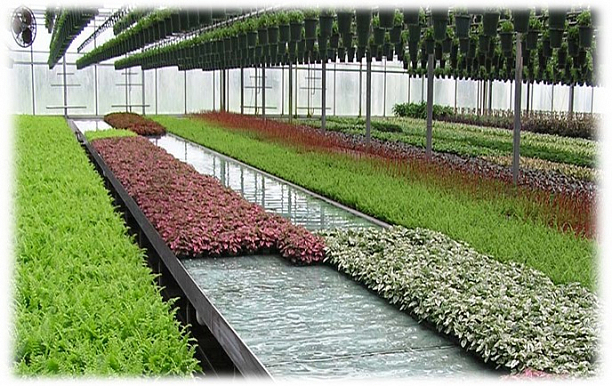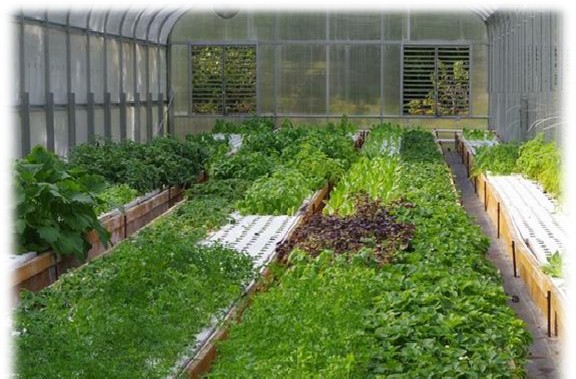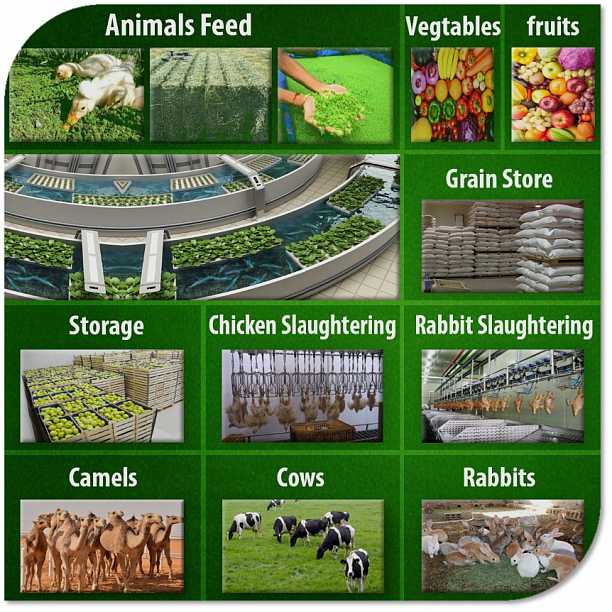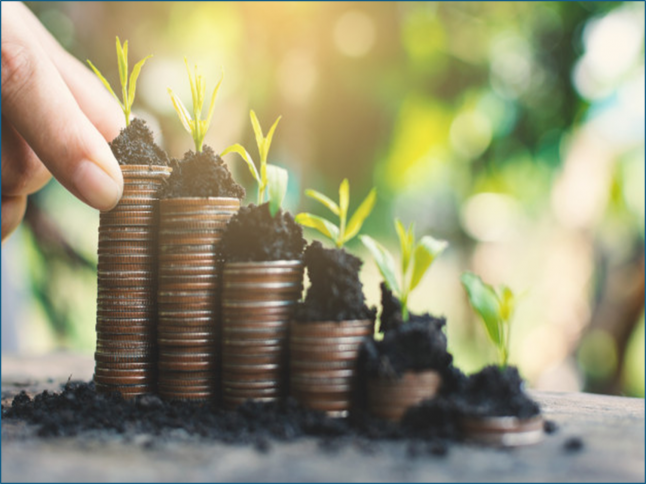29820
Gabal Ohoud for Investment & Development
Cultivation of fish and vegetables
Egypt
Market: Public catering, Food industry, Farming
Stage of the project: Idea or something is already done
Date of last change: 11.07.2018
Egypt
Market: Public catering, Food industry, Farming
Stage of the project: Idea or something is already done
Date of last change: 11.07.2018
Idea
Aquaponics is a form of agriculture that combines raising fish in tanks (recirculating aquaculture) with soilless plant culture (hydroponics). In Aquaponics, the nutrient-rich water from raising fish provides a natural fertilizer for the plants and the plants help to purify the water for the fish.
Current Status
The project's terriotic and financial basis is ready. The risks and sales markets have been outlined, the competitiveness and profitability of the project have been evaluated.
Market
Local market (Egypt)
- Hotels, Restaurants, etc.
- Hyper Supermarkets, Grocery Stores, etc.
- Online Home Delivery Shopping.
- Foreign markets ( Europe – Gulf Area – USA )
- Agents and Merchants at Wholesale Markets.
- Suppliers for mega markets, etc.
- Hotels, Restaurants, etc.
- Hyper Supermarkets, Grocery Stores, etc.
- Online Home Delivery Shopping.
- Foreign markets ( Europe – Gulf Area – USA )
- Agents and Merchants at Wholesale Markets.
- Suppliers for mega markets, etc.
Problem or Opportunity
Still populated by micro enterprises, the Egyptian retail sector is a Greenfield for investors.
70% of the grocery retail sales were from non-organized and independent enterprises in 2007; this number
is expected to fall by 7% in 2017.
The top five retail players hold only 1.8% of total market share, leaving plenty of space for new market entrants, while regional centers outside of Cairo and Alexandria are virtually untouched markets with millions of under-served consumers.
With the world’s population predicted to increase to 9 billion people by 2050 – particularly in areas that have high rates of food insecurity. Aquaponics will make a significant contribution to global food security and economic growth and offers an extremely attractive investment vehicle.
70% of the grocery retail sales were from non-organized and independent enterprises in 2007; this number
is expected to fall by 7% in 2017.
The top five retail players hold only 1.8% of total market share, leaving plenty of space for new market entrants, while regional centers outside of Cairo and Alexandria are virtually untouched markets with millions of under-served consumers.
With the world’s population predicted to increase to 9 billion people by 2050 – particularly in areas that have high rates of food insecurity. Aquaponics will make a significant contribution to global food security and economic growth and offers an extremely attractive investment vehicle.
Solution (product or service)
In Aquaponics, the nutrient-rich water from raising fish provides a natural fertilizer for the plants and the plants help to purify the water for the fish.
It can be done anywhere, providing fresh local food that is free of pesticides, herbicides and chemical fertilizers. It is safe, easy and fresh!
Weather systems and unforeseen climatic conditions do not affect the growth rate, whilst pests and other problems are much easier to prevent. In addition, for the same land mass, Aquaponics yields are 1000% greater than traditional agriculture methods.
It can be done anywhere, providing fresh local food that is free of pesticides, herbicides and chemical fertilizers. It is safe, easy and fresh!
Weather systems and unforeseen climatic conditions do not affect the growth rate, whilst pests and other problems are much easier to prevent. In addition, for the same land mass, Aquaponics yields are 1000% greater than traditional agriculture methods.
Competitors
Approximately 50 % of organizations are less than 10 years old, and 31 % are less than five years old. Only 20 % of enterprises are older than 20 years. A large proportion (76 %) of aquaculture enterprises are small businesses with a turnover of less than R5-million.
Advantages or differentiators
Use 1/6th of the water to grow 8 times more food
per acre compared to traditional agriculture!
- All natural fertilizer sources from fish waste.
- No reliance on mined and manufactured fertilizers.
- Efficient, sustainable and highly productive.
- Produce is free of pesticides and herbicides.
- Fish are free of growth hormones and antibiotics.
- Allows continuous production of food.
- Produces both a protein and vegetable crop.
- Integrated system is sustainable and earth-friendly.
- Eliminating soil eliminates soil borne diseases
Unique Geographic Position
per acre compared to traditional agriculture!
- All natural fertilizer sources from fish waste.
- No reliance on mined and manufactured fertilizers.
- Efficient, sustainable and highly productive.
- Produce is free of pesticides and herbicides.
- Fish are free of growth hormones and antibiotics.
- Allows continuous production of food.
- Produces both a protein and vegetable crop.
- Integrated system is sustainable and earth-friendly.
- Eliminating soil eliminates soil borne diseases
Unique Geographic Position
Business model
Feasibility study for 20 Months
Unit Area = 1 Fadden
Total Unit Cost = 355,000 $
Fadden Price = 90,000 $
Unit Cost / per Fadden = 265,000 $
Startup
8 units * 355,000 = 2,840,000 $ (Total Cost for Startup)
First Stage:
Profit will be (after 20 months)
Average of Profit = 50: 60 % (from Capital of Startup)
Second, Third, ……. Etc.
Profit will be (every 12 months)
Average of Profit = 50: 60 %
Unit Area = 1 Fadden
Total Unit Cost = 355,000 $
Fadden Price = 90,000 $
Unit Cost / per Fadden = 265,000 $
Startup
8 units * 355,000 = 2,840,000 $ (Total Cost for Startup)
First Stage:
Profit will be (after 20 months)
Average of Profit = 50: 60 % (from Capital of Startup)
Second, Third, ……. Etc.
Profit will be (every 12 months)
Average of Profit = 50: 60 %
Money will be spent on
Unit Cost is included the follows
Glass Greenhouse, Agricultural Greenhouse, Agricultural Ponds, Fish Ponds, Seeds, Energy, Transportation, Packing, Water, Filters, Young Fish, Fodder, ETC
Glass Greenhouse, Agricultural Greenhouse, Agricultural Ponds, Fish Ponds, Seeds, Energy, Transportation, Packing, Water, Filters, Young Fish, Fodder, ETC
Team or Management
Risks
Whilst traditional investments are generally related to market performance, quaponics offers the sophisticated investor an unprecedented low risk financial opportunity in a market that is forecast to provide not only stability but extremely high returns for decades to come.
Whilst global demand and excellent growth forecasts are associated with the food industry, Aquaponics offer a passive investment model without the need for day-to-day monitoring.
Whilst global demand and excellent growth forecasts are associated with the food industry, Aquaponics offer a passive investment model without the need for day-to-day monitoring.
Won the competition and other awards
Quality certificates issued to 50 Egyptian fish farms Fifty Egyptian fish farmers have been awarded “the Production Quality Certificate”, which may lead the
way to a national program for the quality of farmed fish in the country. The quality certificates, issued by Intertek, confirm the safety of the local produce and its source attendees were told when Dr Mona Mehrez, Deputy Minister of Agriculture for Animal, Poultry and Fish Affairs, presented the certificates to the 50 tilapia producers. Tilapia are mainly freshwater fish inhabiting shallow streams, ponds, rivers and lakes and less commonly found living in brackish water.
way to a national program for the quality of farmed fish in the country. The quality certificates, issued by Intertek, confirm the safety of the local produce and its source attendees were told when Dr Mona Mehrez, Deputy Minister of Agriculture for Animal, Poultry and Fish Affairs, presented the certificates to the 50 tilapia producers. Tilapia are mainly freshwater fish inhabiting shallow streams, ponds, rivers and lakes and less commonly found living in brackish water.
Photos



Presentation
Sign in/Sign up
